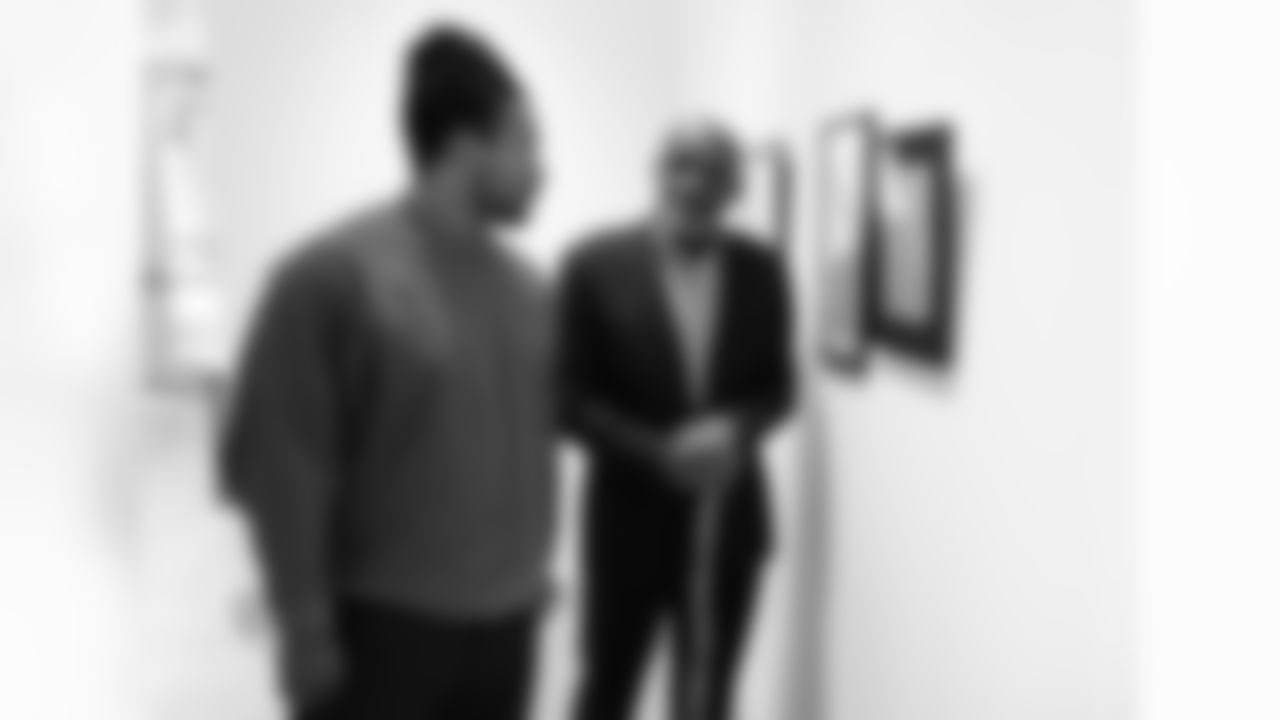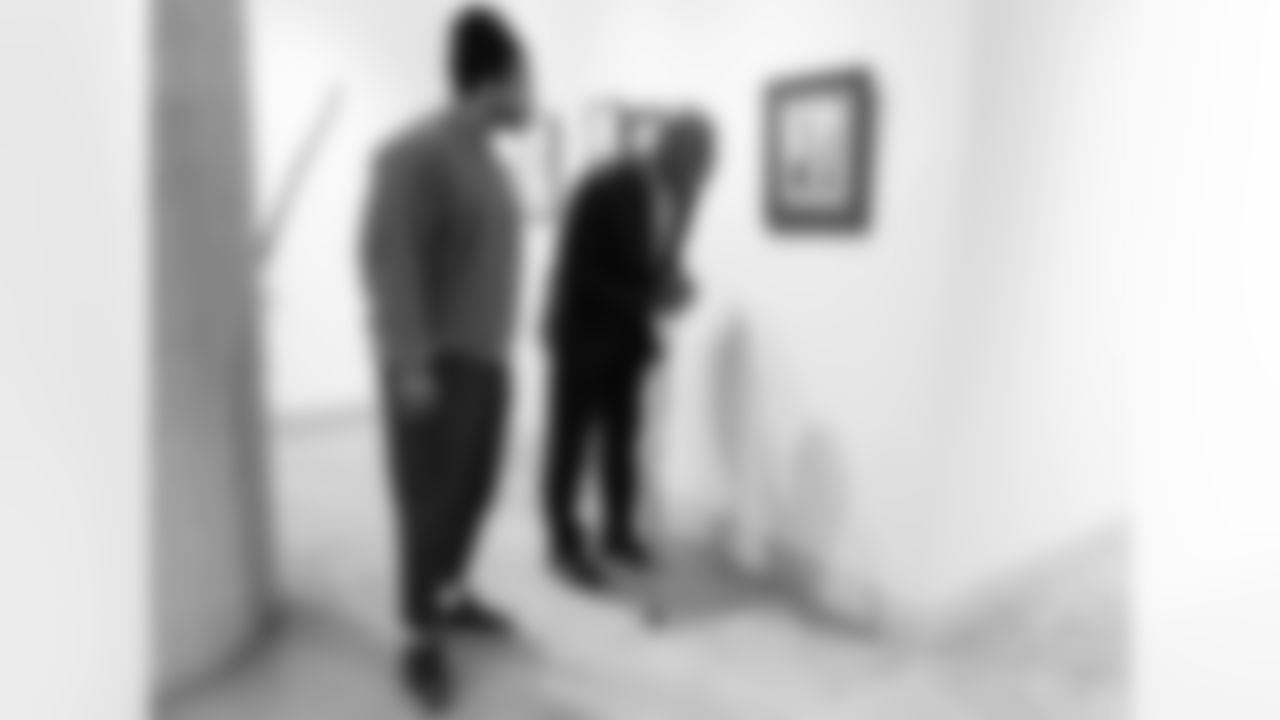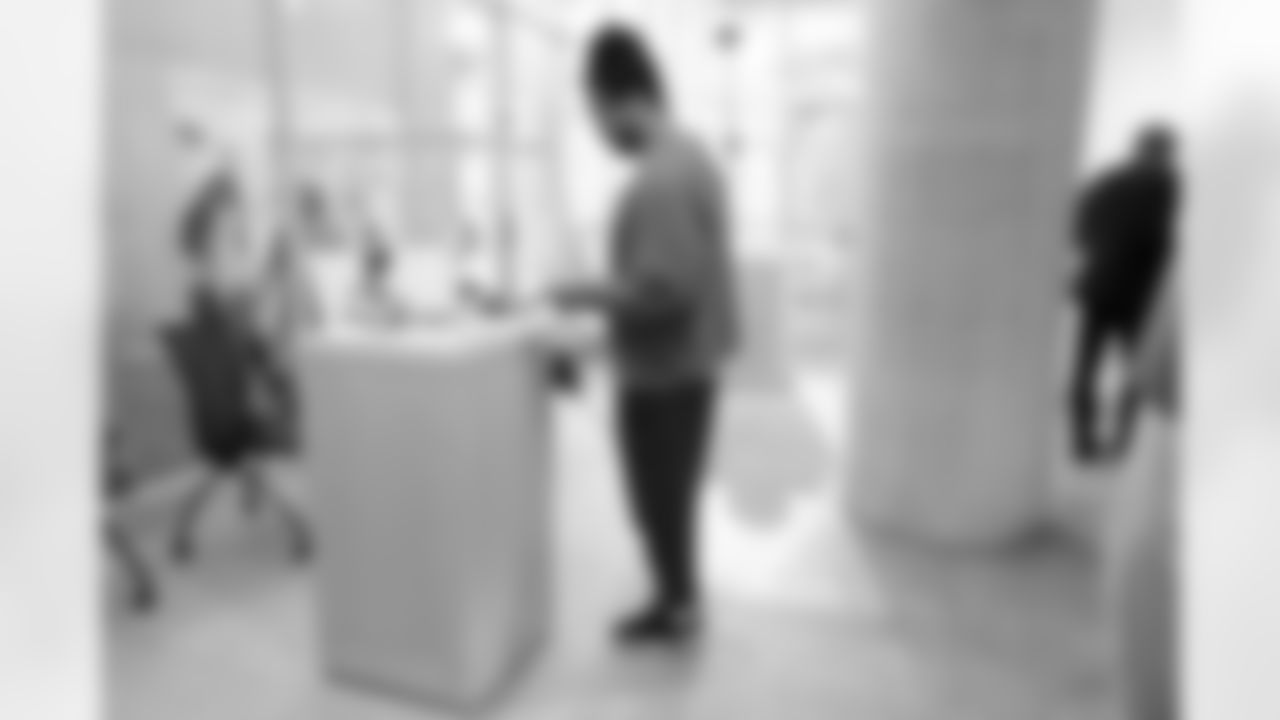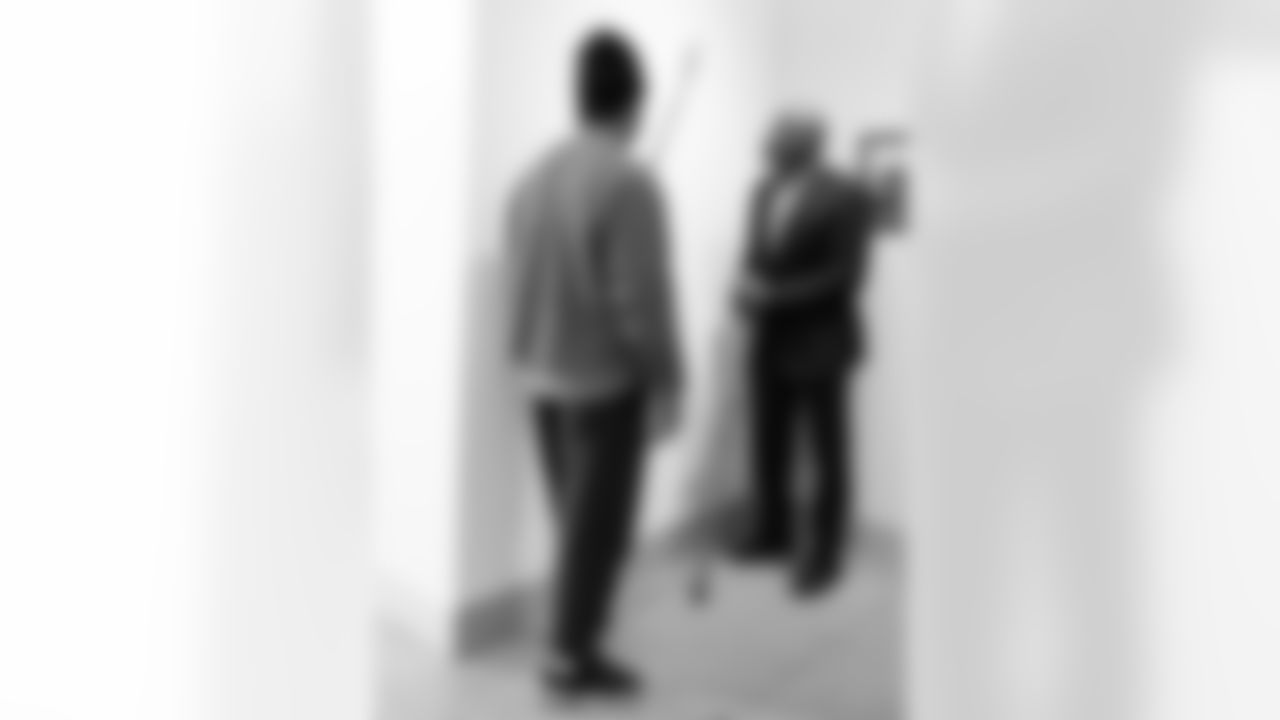MINNEAPOLIS – We've made a lot of progress as a country, but there's so much further to go.
That sentiment was made clear to Vikings teammates Eric Kendricks and Harrison Phillips when they took in the TESTIFY exhibit at Minneapolis Central Library in honor of Black History Month.
As part of an NFL Players Association initiative, Kendricks and Phillips were given individual tours by retired Minnesota Supreme Court Justice and Pro Football Hall of Famer Alan Page, who built the exhibit of Americana from slavery to today alongside his late wife, Diane.
"It's strange to see, but it's important to see," Kendricks said of the collection the Pages personally curated.
The linebacker grew emotional as he looked closely at painful pieces of history:
– An authentic auction listing that advertised the sale of parents and children alongside household items like wooden chairs and tables
– A hand-crafted bracelet with individual "charms" carved in the likenesses of human beings purchased by slave owners
– An elegant, white-and-gold dessert plate celebrating the Ku Klux Klan
– A metal collar designed to close around a slave's neck at auction
Kendricks picked up the collar and quietly traced his fingers along the edge.
"I think what I was feeling when I was holding it was ultimately fear," he said. "[The idea] of something being around my neck just drives me crazy … the fact that it's completely involuntary and there's nothing you can do about it, it gives me that chilling feeling.
"Obviously it's sad and it makes me angry, things like that," Kendricks added, "but [the overwhelming emotion] was fear."
As Kendricks and Page read through humans listed for sale by first name and price, the elder Viking offered a sobering thought:
"The only difference between us and Andrew," Page said, pointing to the name scrawled on the ledger, "is when we were born."
View photos of Vikings Legend Alan Page, LB Eric Kendricks and DL Harrison Phillips touring the TESTIFY Exhibit at the Minneapolis Central Library during Black History Month 2023.













Kendricks emphasized the significance of TESTIFY, which first was on display at the library in 2018 before making its return to the Cargill Gallery this February.
"I think it's important that Justice Page and his wife have created this exhibit because it connects us to our past and allows us to understand our present – more than any type of text or any type of video can ever do," Kendricks said. "I touched a slave collar today, and it brought me a great deal of emotion. Just thinking about that being around my neck gave me the chills, and that kind of connection is not very common. It's kind of lost.
"It's important to keep these artifacts alive and showcase them the way they're doing right now to really give you a feel of our history," Kendricks added.
Page expressed similar sentiments, stressing the importance of sharing these artifacts publicly.
"If you haven't experienced them, it's a little like reading a story. You sort of have a sense of what took place, but you really can't feel it," he said. "Whereas when you have these tangible objects, even if you can't touch them, you can see them. I like to say that these are the facts of our past. They aren't somebody's opinion of our past. I think it's probably human nature, but sometimes we confuse or conflate fact and opinion. And facts can't be denied.
"To have a slave collar, to have a plate that is the K.K.K. … that plate normalized what life was like," Page continued. "And to see that today, I think it gives you a deeper understanding of what was going on back when that plate was made. That you can't get from just hearing about it."
Kendricks and Phillips both were struck immediately by an item at the beginning of the exhibit – a brick that had been part of the White House construction and was made by slave workers.

Phillips acknowledged he hadn't previously known that the White House, a physical symbol of the United States, had been built partially via slave labor.
While Kendricks identified fear as a predominant emotion, Phillips experienced multiple moments of genuine surprise.
"A feeling that kept coming up for me was shock," Phillips said. "As I went around the room and saw different things, I just kept feeling shocked as I was looking at the dates and thinking, 'Oh, this was still sold in the 1980s, and this was still happening in the late '60s.'
"I just thought we were so much further removed than what we are," he added.
Among the artifacts that especially impacted Phillips was a tube of "Darkie" toothpaste (which continued to be sold in China under the discriminatory name until 1989) and a package of cocktail swizzle sticks designed as derogatory caricatures that mocked Black women's bodies.
While pieces of the exhibit certainly are difficult to view and accept as reality, Phillips encouraged everyone to visit the gallery.
"I think when you look at American history, you have to look at it holistically," he said. "And it's ignorant to exclude any parts of that, whether it be great things or not-so-great things that [occurred] in forming the country [we live in] today. Black history is a part of American history."
TESTIFY is presented by Page and his daughter Georgi Page-Smith, who also participated in the tours and elaborated on specific pieces.
Georgi was moved by Kendricks' and Phillips' interactions with the exhibit.
"It's been really inspiring to see that commitment and that civic-minded aspect. It gives me hope," she said. "And the fact that they're willing to actually come down here, you know? This is more than just being on the phone and doing an interview, or to post something on social media, which is awesome, but they took that extra step.
"In these days, it really is so easy to be active and to be engaged, no matter who you are, but it's even that much more meaningful to physically bring yourself out into the community," Georgi added.
Similar to the way football was only a portion of Alan Page's life, Kendricks and Phillips are passionate about social justice and impacting the world past the gridiron. Kendricks was the 2020 Vikings Community Man of the Year and the team's Walter Payton NFL Man of the Year Nominee. Phillips was nominated for the NFL Man of the Year by the Bills in 2020 and 2021 and he was one of five leaguewide finalists for the 2020 NFLPA Alan Page Community Award.
"I don't think people realize that athletes are real people. And they have thoughts going on in their head, and they have dreams for their families and ambitions of what they would like to see society be," Georgi said. "So I think it's important to accept and applaud them, and encourage them to be active in all of our spheres."
In addition to pieces conveying pain and bigotry, those who visit TESTIFY will move beyond that portion of the gallery and into the more encouraging progress that's taken place over the years.
The exhibit sheds light into the Civil Rights Movement, desegregation and unionizing of Black laborers, as well as highlighting African American Olympians and portraits of activists such as Angela Davis and Page himself.
"I think [the Pages] balanced it in a really good way so you can smile, and you can also be compelled to cry and experience different emotions. Because that is Black history; that is American history," Phillips said. "I really like the way that he planned it and set it up in a way that you walk through those different emotions as you walk through the exhibit."
Added Kendricks: "I'm very happy that I came here and got to witness these feelings and these thoughts, to see these things with my own eyes, and feel them."
As Page stopped at various pieces of the exhibit, answering questions for Kendricks and Phillips and explaining the artifacts' background, he smiled.
"It gives me hope. Because they are connected to creating change. And hearing what they have to say, getting their insights, is beneficial to me," Page said. "It gives me hope for the future because it would be easy to say, 'Oh, that doesn't affect me' or 'I'm not connected to that.' Which I think is part of the problem that we have today.
"We sort of say 'out of sight, out of mind' and put it behind us. We sort of pretend like it didn't happen, and then we wonder why things are the way they are today," Page added. "Well, here you have these young guys who are advocates for the future and a better future. That's what's important."















